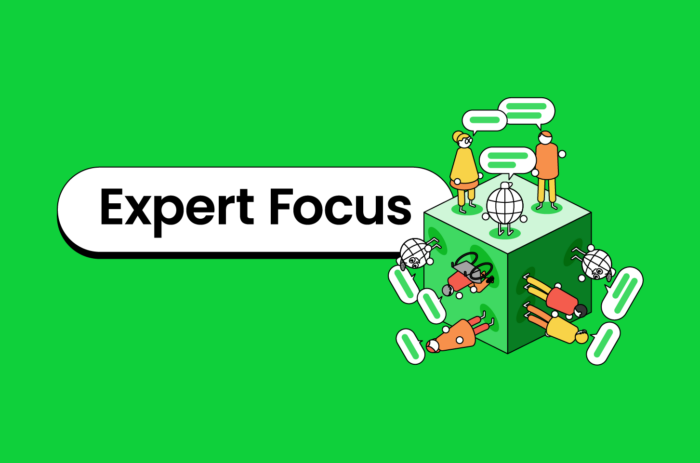AI has officially entered the chat. In the last few months, we’ve seen a dramatic acceleration of generative search added to search engines, online products and services, and as SEOs, we wanted to understand how AI effects our roles in an industry that’s been majorly impacted by the new technology.
We asked the experts how they’re using AI at the moment, and how they think SGE will change the landscape of local search.
(One small caveat—in the past few weeks we’ve seen new features and functions added to SGE. By the time this piece goes live, we’re sure there will have already been some major changes!)
What are you doing with AI at the moment? What tactics are you currently using?
AI is a great assistant for our SEO team. They use it for research, some technical tasks, and coming up with ideas for our writers. We don’t use AI for anything that is forward facing like blog post content, and our clients prefer it this way. We play with prompts every day and create a vault of useful prompts. AI assistants can save us a lot of time, especially with the right prompt. Our SEO team can focus more on strategy and critical thinking/analysis because AI can execute many tasks to save time.
Overall, AI assistants can be a valuable asset to any SEO team. They can help SEO professionals save time, improve the quality of their work, focus on more strategic and creative tasks, and stay ahead of the curve.
Despite AI’s impressive capabilities, the human touch remains integral to our processes, ensuring that our strategies are not only data-driven but also empathetic and user-centric.
What do you think about SGE? How do you think SGE will change the landscape of local search?
There is a glimmer of hope for the local SEO profession, as the 3-pack results appear to be the same as what you would see in a regular search. However, I think that as Google learns, there will be new winners and losers. Unfortunately, I think that SMBs will suffer, as the real estate they were used to will be replaced by new features.
What are you doing with AI at the moment? What tactics are you currently using?
Mainly it’s been a lot of testing of different platforms to understand the capabilities and differences of each. Right now, I’ve been using AI to help streamline processes such as summarizing data, mapping cities to zip codes for local tracking, or building regex filters for GSC. It’s also been helpful in brainstorming ideas for content such as sourcing questions for FAQs or coming up with metadata tests. I think in general things are moving really fast—something new seems to come up every day! Brands should definitely be thinking about how platforms like BingChat, Bard, ChatGPT, and SGE are providing information about their company, products, or services, and what types of content gaps need to be filled or opportunities they can explore.
What do you think about SGE? How do you think SGE will change the landscape of local search?
I think what we’ve been able to see so far has been interesting, the local examples that Google shared with the comparison layout between restaurants definitely shows how this can be used on a local level. However, I think it more or less is continuing to showcase the things we already stress in local SEO—provide the information that users are looking for on GBP profiles and within on-page content and continue to pay attention to reviews, because this is another way that Google is highlighting those. Like anything with Google, I expect there to be multiple tests and changes as time goes on, so its hard to say what the impact will be. Once more people have access to SGE I think it will be important to test different types of queries and questions about local businesses to see how the answers and layouts changed based on what’s being asked.
What are you doing with AI at the moment? What tactics are you currently using?
I currently use AI to help generate ideas and consider new ways to think about data. Right now I think the best use case for many AI tools is for SEOs to understand how generative AI actually works. Knowing the capabilities and limitations of this technology can help us understand what to expect from Search in the future.
What do you think about SGE? How do you think SGE will change the landscape of local search?
I hope SGE is the end of sites being filled with generic content. My hope is that SGE will encourage websites to focus on unique, personalized, and usable content for users. I believe truly understanding your customers and being obsessed with the customer experience will be extremely important in the future.
What are you doing with AI at the moment? What tactics are you currently using?
We’re currently using machine learning for a series of tasks: analysis, clustering data, forecasting, text analysis, and to an extent content generation. We use several different ML techniques including lda, keyword extraction, text summarization, and technologies like using Google’s APIs and TensorFlow. Like many people, we are also using LLMs like GPT, though not entirely relying on them. For example, we tend to chunk our outputs, and then use other ML techniques to check the input matches the output, and check for plagiarism: we use knowledge graphs and entity extraction to try and streamline parts of these processes.
What do you think about SGE? How do you think SGE will change the landscape of local search?
Despite being a machine learning engineer in practice I’m deeply ambivalent about SGEs. I don’t actually think these kinds of experiences usually improve sites, and it still feels like Google is scrambling to catch up while ChatGPT eats it’s lunch.
While I do think SGEs are a logical next step for Google and other search engines I also see it as a way for Google to wash its hands of the consequences of serving certain data to the public. LLMs are trained on all of us, so surely it’s all our fault when they go astray? I think an ideal scenario would have Google back away from OpenAI style chatbots and towards using a combination of LLMs and extractive data to continue down the conversational path they have been going down, but how can that be done without robbing sites of their advertising?
Fundamentally if your site relies on visitor metrics you must focus on unique aspects that cannot be replaced by a machine. I think UGC might end up being extremely useful: sites like Wirecutter that specialize in human, comprehensive reviews: small hobbyist sites with a human touch. The race is as it has always been: do it better than Google, and invite people into your site.
What are you doing with AI at the moment? What tactics are you currently using?
Our team is currently learning how we can use things like ChatGPT as a tool for SEO. We’re definitely not using it for creating site content, we have our own brilliant content team for that. They have been using ChatGPT for some content outlines and ideas but we’re a firm believer in creating good, unique content, unlike the content spewed out by ChatGPT. Bing Chat and Google’s Bard are way off the mark when it comes to anything related to content creation. Very recently we used ChatGPT to expand and suggest additions to our local business schema, it’s fantastic for writing the code for FAQ and HowTo schema, we verify what’s produced but it’s been very good to date. Will Reynolds very recently posted how you can use ChatGPT to help with internal link-building suggestions, it’s a great video to watch and make you start thinking about how you can use ChatGPT as a tool for SEO.
What do you think about SGE? How do you think SGE will change the landscape of local search?
Not an easy one to answer in just a few lines, I recently voted “Meh” to Lily Ray’s question on Google’s SGE, BUT I do like it! It’s “meh” because it’s good but not great and that’s not surprising as this is Version 1.0 of whatever SGE will be eventually before it’s launched to the masses. There’s no doubt it will be launched but in what iteration we don’t know yet. SGE is only open to those that want to take a look at it, it’s not open to the general public yet, so I’m not too worried about what we are currently seeing i.e. I am not panicking if my client does/does not display in results displayed by SGE—it’s nice when they do and interesting to see what does display when they don’t. As someone who’s been doing SEO for more than two decades, it’s great to have a new toy to play with. SGE (and Google’s Bard) is seeing constant updates and changes, so what we see this week can be different the following week. It’s an exhilarating time to be in the local search space, how will it change the landscape of local search and/or search in general? At this moment in time, depending on the search query, it dominates the top of the desktop/mobile search experience, users are going to either ignore it and think “what the hell is this” until they get familiar with it OR they won’t scroll down to the 10 blue links below, and the organic SERPs will be lost to many users forever… let’s just see where this ride takes us!
Conclusion:
Overall, it looks like AI is a great tool to help SEOs manage processes, generate top-level ideas, and help structure content. But, we’re all clear that generative AI should not be a replacement for content creation.
Additionally, SGE proves an exciting time for local search specifically, with a general sense of optimism around it. Let’s see what happens in the coming months!







